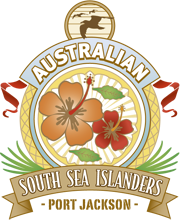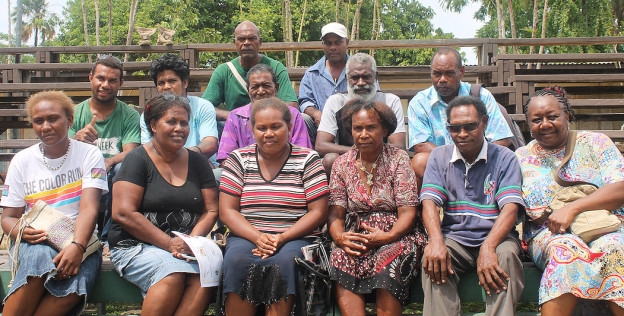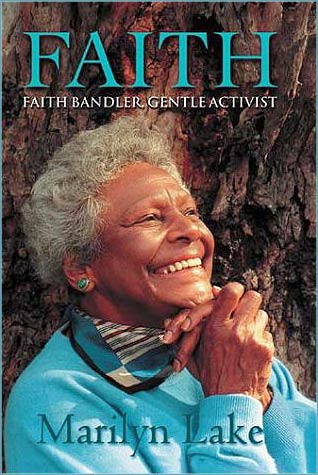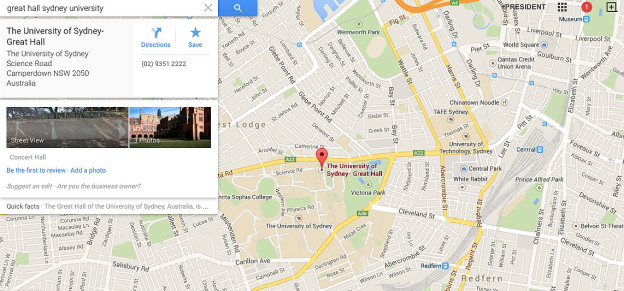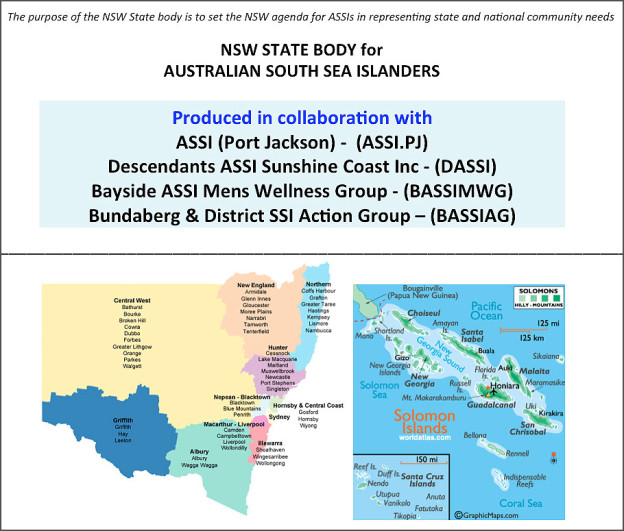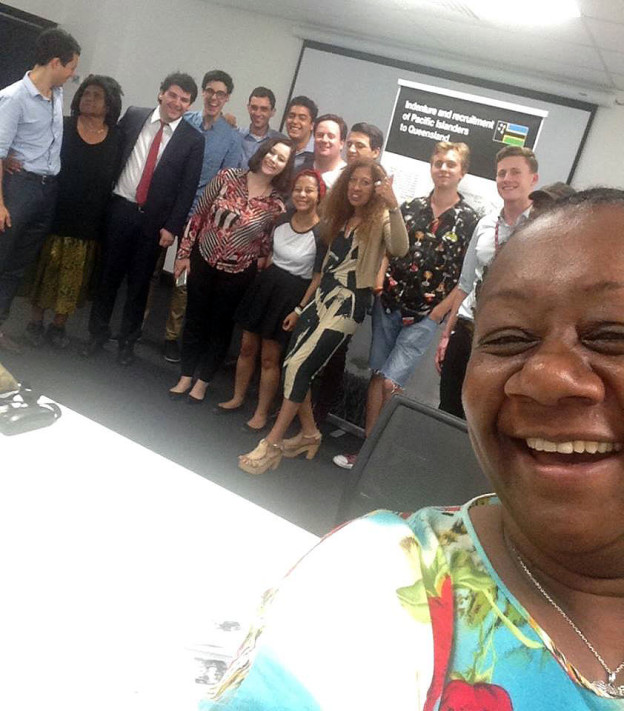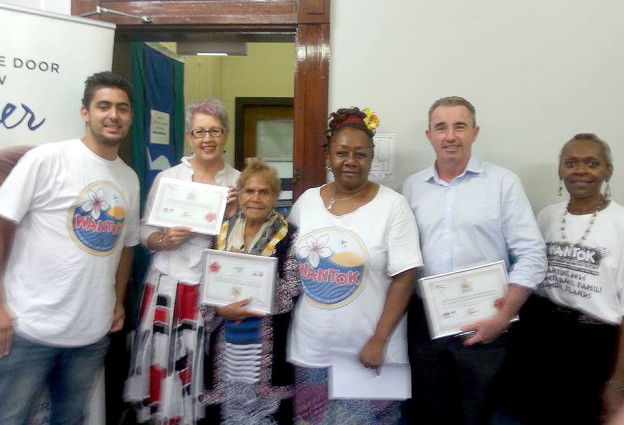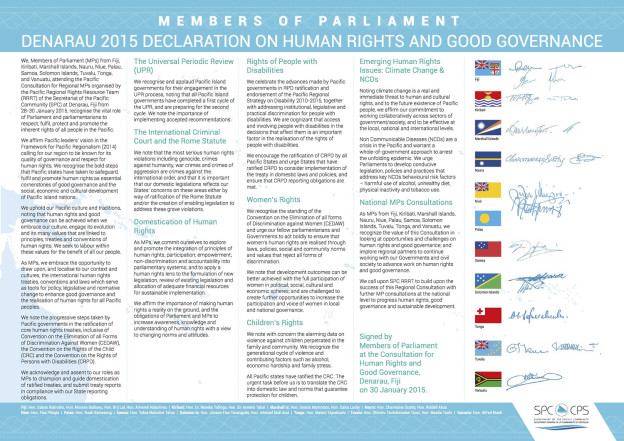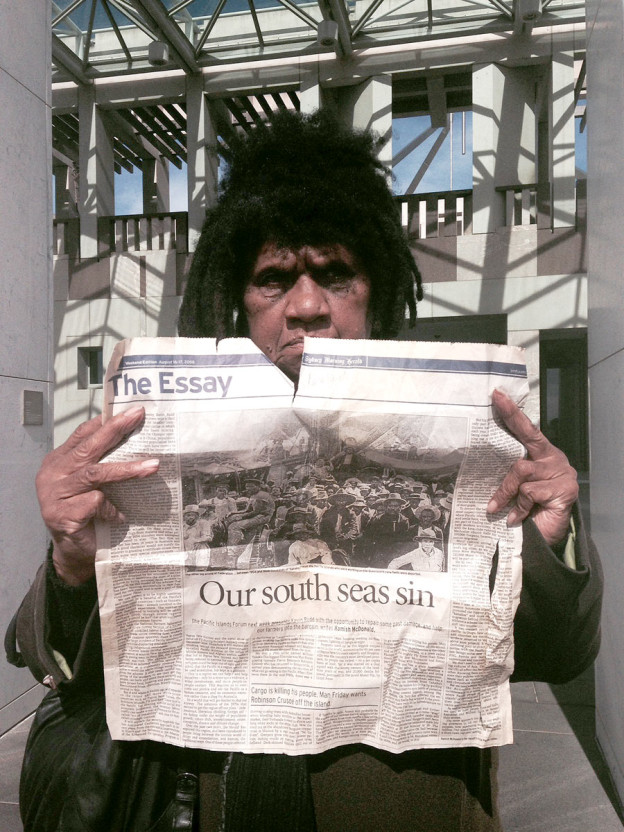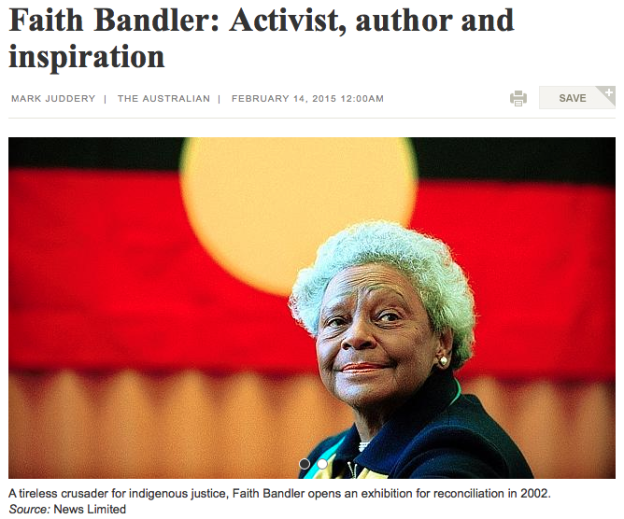
Mrs Ida Lessing Faith Bandler (née Mussing) died today at the age of ninety-six. Of Australian South Sea Islander and Scottish-Indian descent, Faith Bandler is considered as one of the top ten most important Australian leaders of the twentieth century and is profiled as such in the 1993 Australian Biography, ‘ A series that profiles some of the most extraordinary Australian’s of our time’.
Faith was born in 1918, in Tumbulgum, northern NSW, the second youngest of eight children. At the age of 13, Faith’s father Mr Peter Mussing was kidnapped under Australia’s indentured labour trade from the island of Ambrym, Vanuatu and brought to work as a labourer in the Queensland cane fields at Mackay. Faith always regarded his coming to Australia as slavery, and said that he was never paid.
After 14 years, he escaped from Queensland and settled on the Tweed and married Faith’s mother who was of Scottish-Indian descent. Peter Mussing would later successfully challenge the deportation provisions of the Pacific Island Labourers Act of 1901. This act of mass deportation saw over 7,000 Melanesian labourers deported with minimal notice back to Vanuatu and Solomon Islands. More than eighty islands were affected by the trade.
Professor Clive Moore from University of Queensland said that he was saddened to hear of Faith Bandler’s death. “I regard Faith as one of the greatest Australians of the twentieth century. Marilyn Lake, in the title of her 2002 biography of Faith, described her as a “gentle activist”. Faith was all of this.”
Malcolm Fraser described her “ability to inspire people of all races” to take on the struggle for Indigenous Australian and South Sea Islander Australian rights. Likewise, Fred Chaney, on the other side of politics, said that Faith was a charismatic leader who had a strong sense of justice. Faith knew people in all walks of life and could lobby effectively at the highest levels, but she never forgot her humble upbringing in northern New South Wales.
Faith in her early thirties was a peace activist. She had taken leave from her job as a dressmaker at David Jones in Sydney to attend a Soviet-sponsored youth festival in Berlin. Faith also toured Europe as a political dancer with the Margaret Walker Dance Group and performed at the Berlin Festival. When Faith returned home, skeptical of the communists, the security police confiscated her passport and had her sacked from her job.
Faith’s commitment as a gracious and savvy civil rights activist and leader assisted the establishment of the Federal Council for the Advancement of Aborigines and Torres Strait Islanders and led its successful ‘right wrongs write YES’ campaign in the 1967 referendum that saw the Commonwealth take power over Indigenous Australians away from the States and to have them counted in the national census.
In 1974, Faith decided to direct her energies to the plight of her own people, the 16,000 descendants of South Sea Islanders. She founded the National Commission for Australian South Sea Islanders and, in 1975, made her first emotional journey to her father’s birthplace on Ambrym of which she talks about in a documentary.
On her return, Faith worked closely with the Evatt Foundation and Australian South Sea Islanders leaders to produce the preliminary report on the social and economical status of her people, which triggered the 1992 Human Rights and Equal Opportunities Commission Report (HREOC’s ‘The Call for Recognition’). This report led to her people, the South Sea Islander descendants of the indentured labour trade being recognised as a ‘distinct cultural group’ by the Commonwealth Government in 1994.
Faith was a remarkable women, and she was a friend of many leading people in Australia, like Jessie Street, Charlie Perkins, Doug Nicholls, Oodgeroo Noonuccal, Gough Whitlam, and internationally activists like the singer Paul Robson.
In August 2012 we saluted Mrs Faith Bandler, as did the first woman Governor-General; Dame Quentin Bryce, honouring the daughter of a man taken from his South Sea island home to work as a slave in the Queensland cane fields. Mrs Faith Bandler received the highest honour the nation can award its people, the Companion in the Order of Australia Medal. Many years earlier she refused the offer of an MBE, saying she could never accept such as award from an empire that had enslaved her father.
Mrs Faith Bandler AO, some 22 years on since ‘The Call for Recognition’, ASSIs champion you for your foundation in working towards a united community. You carried the baton for us, and today our people are still fighting for rightful inclusion in programs and services as the rhetoric of recognition lingers. We will never forget Aunty Faith.
